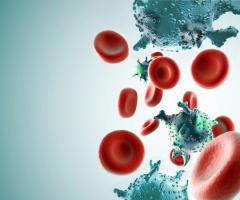
Clinical Pearls for Community Oncologists Treating Relapsed/Refractory AML
Ghayas C. Issa, MD, offers closing thoughts on genetic testing and targeted therapies for patients with relapsed/refractory acute myeloid leukemia.
Episodes in this series

This is a video synopsis/summary of an OncView® featuring Ghayas C. Issa, MD.
Issa emphasizes that with more therapies emerging, acute myeloid leukemia (AML) treatment can no longer be one-size-fits-all, especially in the relapsed/refractory setting where current options remain ineffective. Better targeted therapies are key to improving outcomes by addressing specific molecular AML drivers, so appropriate patient profiling is critical. At MD Anderson Cancer Center, extensive testing is done to match treatments to abnormalities, now including menin inhibitors for actionable mutations such as KMT2A and NPM1. Additional testing should check for co-occurring FLT3 mutations also targetable in combination strategies.
Research identified that resistance to the menin inhibitor revumenib arises due to mutations at its binding site, validating menin as an effective therapeutic target akin to experience with tyrosine kinase inhibitors in other cancers. However this also pushes development of rational combinations to decrease resistance risk by utilizing agents with different mechanisms of action. The combination of a menin inhibitor plus venetoclax looks highly promising in this regard. Another important combination would be a menin inhibitor plus an FLT3 inhibitor, as FLT3 mutations frequently co-occur with NPM1. Excellent preclinical data already supports improved response rates and lower resistance rates for such combinations.
Video synopsis is AI-generated and reviewed by Cancer Network® editorial staff.
Newsletter
Stay up to date on recent advances in the multidisciplinary approach to cancer.








































